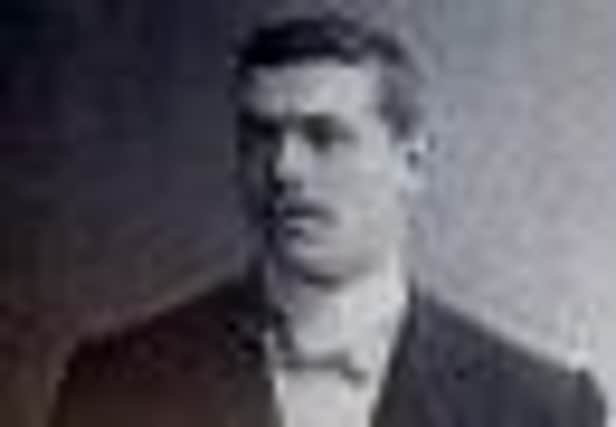Rathfriland Orangeman who died on Titanic


Thomas Rowan Morrow from Drumlough boarded the New York-bound ship at Queenstown in Cork on 11 April 1912. Just four days later the vessel hit an iceberg and sank, killing more than 1,500 of those on board. Thomas’ body was never recovered.
The 31-year-old, who worked as a general labourer, had paid £7 and 15 shillings for a third class ticket - worth around £120 in today’s money - after making the lengthy journey from his native Drumlough to the southern tip of Ireland. It is said a friend Robert Bell, who still has relatives in the Rathfriland area, was to travel with Thomas but for unknown reasons didn’t board the ship. Robert later sailed to America on the Lusitania.
Advertisement
Hide AdAdvertisement
Hide AdThomas, a past Worshipful Master within Drumlough LOL 153, was en route to see his brother Waddell in Alberta, Canada to where he had emigrated three years previously.
Sadly he never made it and, in a news report following the ship’s sinking, he was described as “a man of great promise” and his death was said to have caused great sadness in his local area.
In the 1911 censurs, Thomas’ name is listed along with his widowed mother and sister although it is thought he also had a brother Robert and two sisters, Mary and Sara.
Philip Mowat, from the Ulster American Folk Park, said Thomas is likely to have been one of only a handful of passengers from Ulster who sailed on the White Star Liner because the port in Cork was such a distance away.
Advertisement
Hide AdAdvertisement
Hide AdHe said, “Most people from the Northern part of Ireland usually sailed on ships from Belfast or other closer ports but it seems these two men for some reason travelled all the way to Cork where Thomas boarded the Titanic.”
While Thomas may not have enjoyed the luxuries of the first class passengers, it was said even third class accommodation was “of a very superior character” for the era. Passengers had use of a dining saloon, smoke room, general room and promenade.
Thomas’ third class status immediately put him at a disadvantage when the ship began to sink as men in third class were some of the last to make it into the few lifeboats carried on the boat. Just 75 of the 462 adult males in third class survived the disaster.